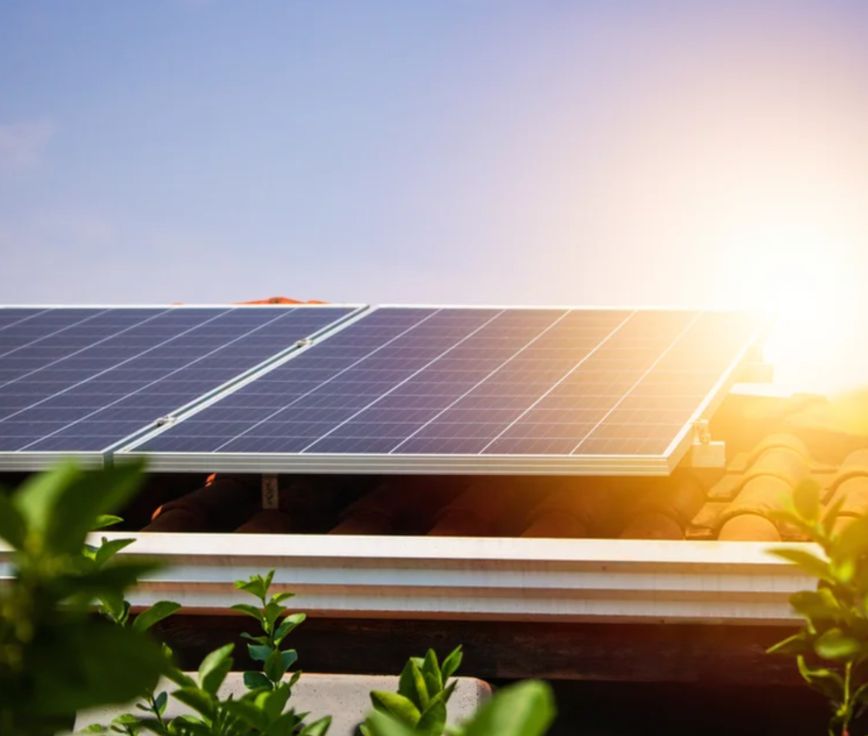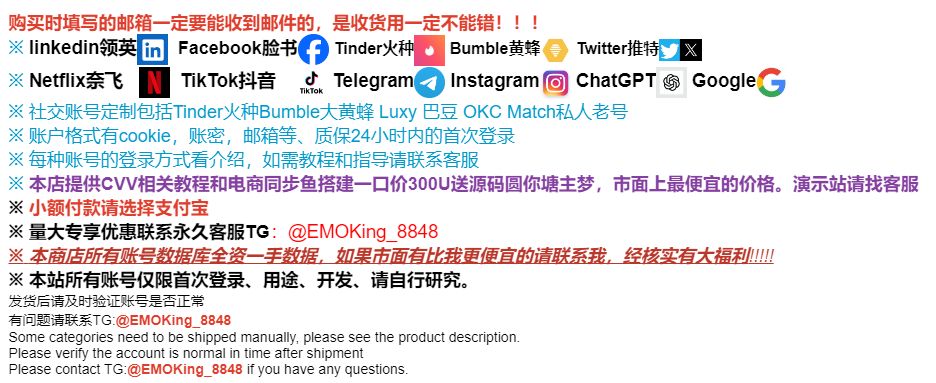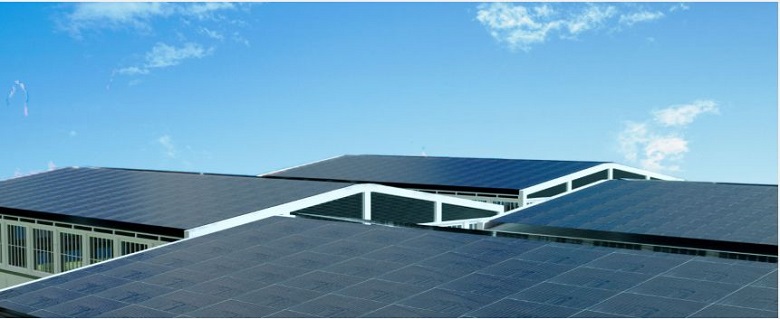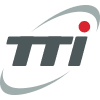High-performance Solar Energy Solution
Solar power has become an increasingly popular and accessible source of renewable energy. Photovoltaic (PV) systems are being installed on rooftops and in various other locations to harness the power of the sun. Within these solar setups, micro inverters are playing a pivotal role, offering numerous advantages over traditional central inverters.

What is a Micro Inverter?
A micro inverter is a small, compact device that converts direct current (DC) electricity generated by individual solar panels into alternating current (AC). Unlike central inverters, which are typically connected to an entire array of solar panels, micro inverters are installed on a per-panel basis. This means that each solar panel in your array has its dedicated inverter. Let's take a closer look at how they work and their benefits.
How Micro Inverters Work:
Panel-Level Conversion: In a conventional PV system with a central inverter, the DC power generated by multiple solar panels is combined before conversion to AC. In contrast, micro inverters perform the DC to AC conversion at the panel level. Each solar panel is equipped with its micro inverter, ensuring that shading, dust, or debris on one panel doesn't significantly affect the output of the entire system.
Advantages of Micro Inverters:
Improved Efficiency: Micro inverters maximize the energy production of each solar panel, resulting in a higher overall system efficiency. This can lead to increased energy savings and a faster return on investment.
Enhanced Reliability: Since each panel operates independently with its micro inverter, the overall system is more reliable. A malfunction or shading issue on one panel does not affect the others.
The Need for Energy Storage:
Renewable energy sources are clean and sustainable, but they come with inherent challenges. The sun doesn't always shine, and the wind doesn't always blow. These variations in energy production can lead to grid instability and inefficiencies. Energy storage addresses these challenges by storing excess energy generated during optimal conditions and releasing it when needed, ensuring a constant power supply.
How Energy Storage Works:
Battery Energy Storage: Batteries are the most common form of energy storage. They store electricity in chemical form and release it as needed. Lithium-ion batteries, similar to those used in electric vehicles, are widely employed in residential and commercial applications due to their high energy density and efficiency.
Pumped Hydro Storage: This technology uses excess electricity to pump water from a lower reservoir to a higher one when energy is abundant. When electricity is needed, the water is released, flowing downhill through turbines to generate power.
Benefits of Energy Storage:
Grid Stabilization: Energy storage systems can smooth out the variations in renewable energy generation, ensuring a stable power supply.
Energy Independence: By storing excess energy, individuals and businesses can reduce their reliance on the grid and take greater control of their energy production and consumption.
Understanding PV Smart Meters:
PV smart meters or solar smart meters, are digital devices designed to measure and monitor the production, consumption, and grid interaction of electricity in solar photovoltaic systems. These meters go beyond traditional energy meters by offering real-time data, remote monitoring, and advanced features specifically tailored for solar installations.
How PV Smart Meters Work:
Bi-Directional Monitoring: PV smart meter measure electricity in two directions - incoming electricity from the grid and outgoing electricity generated by the solar panels. This bi-directional monitoring enables users to track their energy consumption and any surplus energy they export to the grid.
Remote Monitoring: PV smart meter are typically equipped with remote monitoring capabilities, allowing solar system owners to keep tabs on their energy production and usage from anywhere. This is particularly useful for system maintenance, troubleshooting, and optimizing energy consumption.
Time-of-Use Tariffs: Some PV smart meters support time-of-use (TOU) tariffs, enabling users to take advantage of lower electricity rates during off-peak hours and maximize savings.
Advantages of PV Smart Meters:
Accurate Billing: With bi-directional monitoring, PV smart meters ensure that solar system owners are accurately billed for the electricity they consume from the grid and credited for excess energy fed back into the grid.
Optimized Self-Consumption: Real-time data and remote monitoring empower users to adjust their energy usage patterns, thereby increasing self-consumption of solar-generated electricity.
Troubleshooting and Maintenance: Remote monitoring simplifies system maintenance and troubleshooting, reducing downtime and enhancing the longevity of solar installations.
How Solar Energy Solutions Work:
Solar Photovoltaic Systems: Solar Energy Solution consist of photovoltaic cells made from semiconductors. When sunlight hits these cells, they release electrons, creating an electric current. An inverter then converts this DC electricity into usable AC power.
Solar Thermal Systems: These systems use mirrors or lenses to focus sunlight onto a receiver, where a heat transfer fluid (usually a type of oil) is heated. The hot fluid is then used to generate electricity through a heat exchanger or stored for later use.
Solar Water Heaters: Solar collectors usually mounted on rooftops absorb solar energy to heat water in a storage tank. A circulation pump circulates the heated water for various applications, such as space heating or domestic hot water.
How PV Micro Inverters Work:
Panel-Level Conversion: In a conventional PV system with a central inverter, the DC power generated by several solar panels is combined before conversion to AC. In contrast, micro inverters perform the DC to AC conversion at the panel level. Each solar panel has its dedicated micro inverter, ensuring that shading, dust, or debris on one panel doesn't significantly affect the output of the entire system.
Maximum Power Point Tracking (MPPT): Micro inverters use MPPT technology to optimize the power output of each individual panel. This means that if one panel is partially shaded or dirty, it won't drag down the performance of the entire array. Each micro inverter independently tracks the maximum power point for its associated panel, allowing for optimal energy generation.
Advantages of PV Micro Inverters:
Improved Efficiency: PV Micro inverter maximize the energy production of each solar panel, resulting in a higher overall system efficiency. This can lead to increased energy savings and a faster return on investment.
Enhanced Reliability: Since each panel operates independently with its micro inverter, the overall system is more reliable. A malfunction or shading issue on one panel does not affect the others.
Monitoring Capabilities: Many micro inverter systems offer real-time monitoring of each panel's performance. This allows homeowners and installers to quickly identify and address any issues.
Understanding Solar Micro Inverters:
solar micro inverter is a small, yet critical component in a solar photovoltaic (PV) system. It serves the purpose of converting the direct current (DC) electricity generated by individual solar panels into usable alternating current (AC) electricity. What sets micro inverters apart from traditional central inverters is that they are installed on a per-panel basis, allowing each solar panel to operate independently.
How Solar Micro Inverters Work:
Panel-Level: In a conventional PV system with a central inverter, the DC power generated by several solar panels is combined before being converted to AC. In contrast, micro inverters perform the DC to AC conversion at the panel level. Each solar panel is equipped with its dedicated micro inverter, ensuring that shading, dust, or debris on one panel doesn't significantly affect the performance of the entire system.
Enhanced Safety: Micro inverters operate at a lower voltage and have rapid shutdown capabilities, enhancing the safety of your solar system. In the event of a power outage or maintenance, micro inverters can quickly and automatically shut down, reducing the risk of electrical shock for first responders and maintenance personnel.
Advantages of Solar Micro Inverters:
Improved Efficiency: Solar micro inverters maximize the energy production of each solar panel, resulting in a higher overall system efficiency. This can lead to increased energy savings and a faster return on investment.
Enhanced Reliability: Since each panel operates independently with its micro inverter, the overall system is more reliable. A malfunction or shading issue on one panel does not affect the others.
Solar micro inverter have revolutionized the solar industry by offering greater efficiency, reliability, and scalability in comparison to traditional central inverters. As the demand for residential and commercial solar power continues to grow, solar micro inverters are likely to become even more widespread. Their ability to optimize the power output of individual panels and their safety features make them a compelling choice for anyone considering a solar installation. Embracing this technology can help you make the most of the abundant energy provided by the sun while reducing your carbon footprint. The future of solar energy is brighter than ever, thanks in large part to these innovative solar micro inverters.
商业来自Jakir Ahmmed的文章
查看博客
This website offers Linkedin Facebook Tinder Bumble Twitter Netflix TikTok Telegram Instagram ChatGP ...

OBD2Sales offer You Original LAUNCH X431 ,LAUNCH X431 V,MD SD C4,Autel maxisys Pro,Kess v2 ,SBB PRO2 ...

In an era marked by climate change and a growing need for sustainable energy sources, solar photovol ...
你可能对这些工作感兴趣
-

Veterinary Pharmacy Technician
发现在: Talent HK C2 - 6天前
The Hong Kong Jockey Club Hong Kong, 香港 全职The Department · The Department of Veterinary Clinical Services provides veterinary and farrier care for all horses in the Hong Kong SAR. While the health and welfare of horses is our focus, we acknowledge the importance of our role in protecting owners' valuable investments and ...
-
高级机加工工程师
发现在: Talent HK C2 - 1周前
Techtronic Industries Hong Kong, 香港 全职职位描述: · 1. 机械相关专业,五年以上五金机械加工行业经验, 五金加工的常用工艺方法(车,铣,钻,磨,电火花线切割等),并能制定出合理的加工工艺; 2. 熟悉五金常用材料的加工性能,了解金属热处理工艺; 3. 现场加工技术问题解决,统筹协调能力强; 4. 良好的英文读写能力; ...
-
Senior Legal Counsel
发现在: Talent HK A C2 - 4天前
FortisHill Consulting Limited Hong Kong, 香港 全职Responsibilities: · Provide comprehensive legal support across various product lines. · Advise management on legal matters related to the launch of new products and business initiatives. · Structure legal frameworks for different products, including PE funds, SICAV, hedge funds, ...


评论